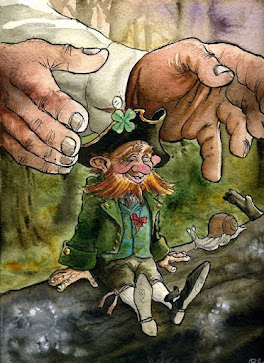The influence of Saint Patrick on Ireland
Ireland's patron saint, Saint Patrick, is commonly considered as having brought Christianity across the island nation in the fifth century. He had a significant impact on Ireland, influencing not only the country's religious environment but also its culture, politics, and history.
One of Saint Patrick's greatest accomplishments was converting the Irish to Christianity, which had a major impact on the nation's spiritual and religious life. The numerous Irish tribes, who had previously adhered to distinct religions and belief systems, were able to come together thanks to this conversion.
Saint Patrick's teachings also aided in the founding of several monasteries, cathedrals, and other important institutions of learning, culture, and the arts across the nation. These organizations made major contributions to the creation of Irish literature, music, and art as well as to the preservation of the nation's rich cultural history.
Saint Patrick's legacy has been cited in a number of political movements throughout Irish history, demonstrating the saint's effect on politics as well. For instance, Saint Patrick served as a metaphor for Irish identity and resistance to British domination during the early 20th century war for Irish independence.
Today, Saint Patrick's Day, which is observed on March 17 every year, is a national holiday in Ireland, and festivities are held there and abroad. The celebration is a testament of Saint Patrick's ongoing importance to Irish identity and culture.
In conclusion, Saint Patrick had a significant impact on Ireland, influencing its religious, cultural, political, and historical landscape. In Ireland and other countries, his legacy is still honored and remembered.




Comments
Post a Comment